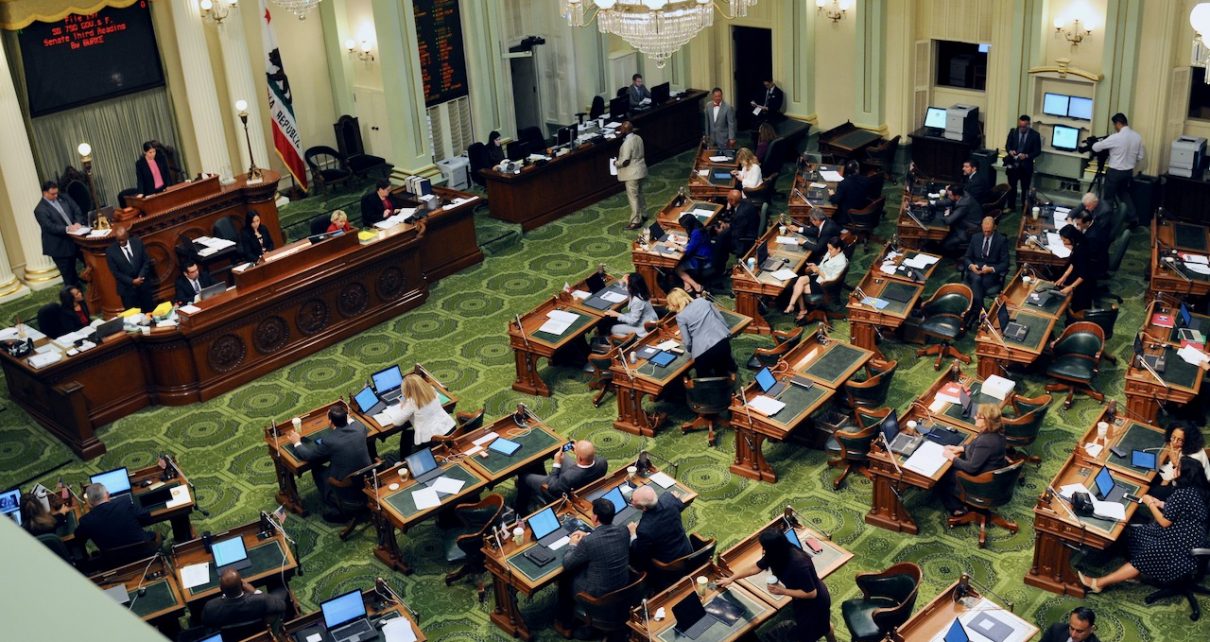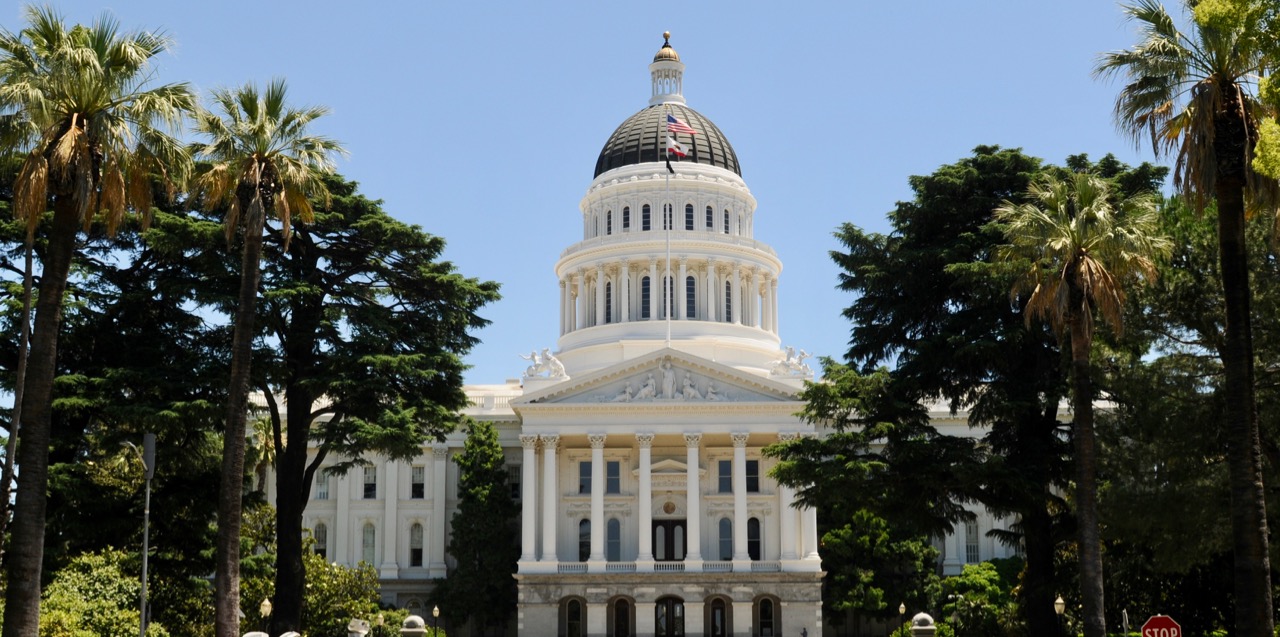
California State Assembly Chamber. (Photo: Kevin Sanders for California Globe)
Special Session or Extraordinary Session – Which Is It?
When it comes to the Joint Rules of the Assembly and Senate, the term ‘extraordinary session’ is used almost exclusively
By Chris Micheli, October 24, 2022 10:52 am
With an impending special session being called by Governor Gavin Newsom when the California Legislature convenes its 2023-24 Regular Session on December 5, some observers have asked, “Is it called a special session or an extraordinary session?”
California Constitution
The power to call a special session by the Governor is set forth in the California Constitution, Article IV, Section 3(b). This provision states: “(b) On extraordinary occasions the Governor by proclamation may cause the Legislature to assemble in special session. When so assembled it has power to legislate only on subjects specified in the proclamation but may provide for expenses and other matters incidental to the session.”
Based upon the above language in the state Constitution, the existence of an “extraordinary occasion” allows the Governor to call the Legislature into “special session.” This is the only time that the word “extraordinary” is used in Article IV. On the other hand, the word “special” is used half a dozen times in Article IV. In addition, to Section 3(b), the terms regular session and special session are referenced in several sections.
Section 8(c)(1) deals with the time a statute enacted at a special session goes into effect. Section 10(b)(4) deals with the 12-day veto period after adjournment of a special session. Section 10(f)(1) deals with fiscal emergency special sessions. Section 12(h) deals with expenses paid to legislators during regular or special sessions. As a result, the term “special session” is used throughout the state Constitution, especially in relation to a regular session.
California Codes
Of interest is that there are roughly 90 references to “extraordinary sessions” in California statutes, but the term is used to reference a specific extraordinary session relating to the effective date of a statute enacted during such an extraordinary session. We see it in statute referencing as early as a 1944 Extraordinary Session.
Otherwise, only Government Code Section 9004 references an “extraordinary session” (in addition to a regular session) regarding when the Legislature must convene during or following a war or enemy-caused disaster.
In the meantime, there are just over two dozen references to a “special session” in the Government Code. For example, Section 9921 requires the Senate and Assembly to adopted Joint Rules for their proceeding “for each regular and special session by resolution…”
Legislative Rules
When it comes to the Joint Rules of the Assembly and Senate, the term “extraordinary session” is used almost exclusively. Joint Rule 3.5 relates to the effect of the adoption of joint rules for any extraordinary session. JR 13 deals with the distribution of legislative publications for any regular or extraordinary session. JR 13.3 deals with the Summary Digest at each regular and extraordinary session. JR 50.3 deals with the designation of all extraordinary sessions. On the other hand, only once is the term “special session” mentioned in the Joint Rules.
Regarding the Senate Rules, the term “extraordinary session” is used just once – in Senate Rule 12. On the other hand, the Senate Rules used the term “special session” three times, such as in SR 24 relating to the introduction of bills and resolutions at special sessions. However, the Assembly Rules do not reference either special session or extraordinary session at all.
Because “special session” is used throughout the state Constitution, I think that is the better term. However, in legislative publications (Daily File, Daily Journal, Weekly History, etc.) and the Joint Rules, the term “extraordinary session” is what is used.
- Insignia of Nonprofit Associations - February 19, 2026
- Endangered Species Regulation - February 19, 2026
- Renewal of Judgments - February 18, 2026





One thought on “Special Session or Extraordinary Session – Which Is It?”